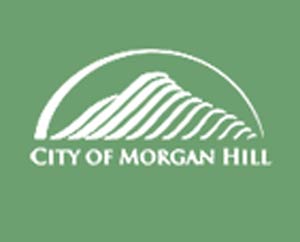Despite the formal objection of 159 residents, the Morgan Hill City Council Jan. 20 approved new utility rates that will see the average residential water customer’s bill go up more than 60 percent by the end of 2020.
The new rates, adopted unanimously by the five-member council, were subject to Proposition 218 requirements that allow ratepayers to block proposed price increases with a majority protest. The tally of 159 protest letters counted during the Jan. 20 public hearing—the end of the 45-day comment period—fell far short of the 6,000-plus needed by state law to prevent the rate hikes.
Rates for all the city’s 13,000 water and wastewater customers will go up annually for the next five years, starting April 1. The average monthly bill for water and wastewater rates combined, for a single family home, will rise from the current charge of $90.13 to $121.24 in 2020.
The new rates are a reconfiguration of the city’s utility service revenue model, as the previous methods are unreliable and perhaps even illegal, according to Morgan Hill Public Works Director Karl Bjarke.
As customers have cut their water use by more than 20 percent citywide the last three years due to the ongoing drought, city water revenues have declined, Bjarke explained. However, the city’s costs to deliver water and remove wastewater continue to increase.
Furthermore, a state court ruled last year that tiered water rates, which charge customers a higher rate per unit of water as their consumption increases, are unconstitutional. The City of Morgan Hill has used such a tiered rate system for decades.
Thus, the new rates are based on fixed monthly rates according to the customer’s meter size, plus a charge per 100 cubic feet of water or wastewater that is equal for all customers, city staff explained.
The increasing rates will also create a surplus of revenue each year that will be used to build up the water and wastewater fund’s cash reserve. This surplus will also help fund a “proactive capital replacement program” to maintain older or busted pipes or equipment, according to city staff.
Some of the seven members of the public who spoke at the Jan. 20 council meeting noted the irony that customers are asked to pay more for water even though they are, in many cases, using significantly less of it.
For the first time, Morgan Hill’s water and wastewater rates include a “zonal surcharge” for customers who live in the hillsides served by the city utility system. These additional monthly charges are intended to pay for the city’s extra electricity costs to power pumps that deliver water and wastewater uphill, according to city staff.
Customers who spoke at the Jan. 20 meeting reside mostly in neighborhoods on the city’s hillsides, including Holiday Lake Estates and Jackson Oaks. They complained the surcharge for pumping uphill is unfair to the uphill customers, and asked the council to consider other cost-reducing efforts such as more solar power.
Other ratepayers said the city’s effort to meet Proposition 218 noticing requirements was not customer friendly, and the protest process was confusing and cumbersome. One said she thought the envelope in which the notice letter was sent, informing customers about the proposed rates and how to formally protest, looked like “junk mail.”
Resident Marby Lee, a former councilmember, said the council should not have timed the 45-day public comment period during the winter holidays, during which time City Hall was closed for five business days. The city sent the Prop 218 notices to customers Dec. 5.
The rate plan approved Jan. 20 also increases the city’s monthly subsidy for low-income customers by 10 percent annually for the next five years. The current subsidy is $3.63 per month for water, and $7.69 for wastewater.
The first annual water and wastewater rate increase (7.4 percent combined) will kick in April 1.








